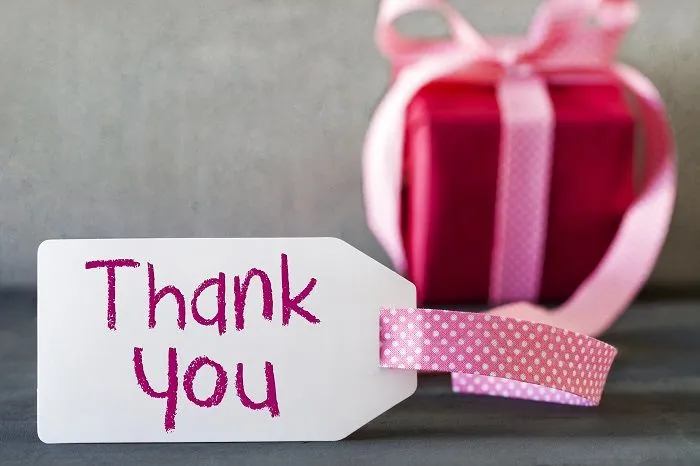Rejections always hit hard. It may be a job, business, project, or marriage proposal. Feeling sad after being rejected is just a human thing; it is not something we should regret in life. An opportunity came, and the opportunity was gone—nothing else. It is not a failure; it's redirection!
When you need a job and don't get it, it can be difficult, but how to reply to a rejection email has an everlasting effect.
If you've received rejection mail from anyone else, feel disappointed and lost, and don't know what to do next, this blog is surely for you.
Let us help you respond to a rejection email in a way that will not only show your professionalism but also help you secure a good position in the future. We also guide you through writing a thank you note after the rejection letter.
Look! Take rejection as a networking opportunity. It is a way to create professional networking and build a positive relationship with any business holder. Reply to a rejection email is not necessary. Still, when all other candidates also faced rejection from you and did not send a thank you email, you replied to them. You showed professional behavior, which would leave a positive impact on the employer and may be beneficial for you in the future.
There may be certain conditions in which a selected candidate would not be able to work due to personal reasons, may leave the organization within a short duration, or many other situations that help you to secure a good position within the same organization.
Let's explore some other whys for the same question.
We all feel despair after receiving "no" to something. We find it very difficult to compete with that rejection, and most of the time, we lose our self-confidence.
Do you want to deal with rejection bravely but don't know how? Don't worry—we are here for you!
Read & remember the points written below and apply them in your life.
When writing responses to rejection email, contemplate these points.
Have a strong subject line
Having a strong subject line for your letter may increase your chances of reading that mail. Try to write a simple and to-the-point subject. Let's have some examples:
Say thank you to the sender
Firstly, you should thank the employer who gave you an opportunity to express yourself. It does not matter whether you got that job or not, but you should definitely thank them. Also, show your interest in keeping in touch with them in the future.
You can use any of these simple lines to write a thank you note after a rejection letter.
Ask for Feedback
Having feedback after any rejection helps you learn about yourself and gives you an opportunity to improve for future opportunities. Requesting feedback from the recruiter shows your genuine concern about this job.
Take out suggestions from these responses on how you can ask for feedback.
Example
Now, look at an example where we have mentioned all the points above. Feel free to edit this according to your choice.
Subject: Thank You for the Opportunity – Looking Forward to Future Opportunities
Dear [Hiring Manager's Name],
Thank you so much for your email and for informing me of your decision. I truly appreciate your time and effort in considering my application and interviewing me for the [Job Title] position.
Learning more about [Company Name] was a pleasure, and I'm grateful for the opportunity to meet with you and your team. I would love to stay in touch and remain open to any future opportunities that may align with my skills and experience.
If you have any feedback or suggestions on how I can improve for future roles, I would be very grateful for your insights. I'm always looking to grow and refine my approach.
Thanks again, and I hope we can connect again in the future!
Best regards,
[Your Full Name]
[Your Contact Information]
Sometimes, we are first selected for an interview after sending our CV and may receive a rejection email after interview. Still, other times, we may receive a rejection email without an interview. The question is how to respond to job rejection in such a scenario.
If you think ignoring rejection emails is the best solution to this problem, then you are wrong! Here, you have the opportunity to show your keen interest in front of the recruiter and come out of the pool of rejected candidates.
Look at an example of writing a follow up email after rejection without an interview.
Subject: Thank You for the Opportunity – Seeking Feedback
Dear [Hiring Manager's Name],
Thank you for informing me about your decision regarding the [Job Title] position. While I'm disappointed that I wasn't selected for an interview, I genuinely appreciate the opportunity to be considered.
I would be grateful for any feedback on my application, if possible. I'm always looking for ways to improve and better align my skills with future opportunities.
I would love to stay connected and remain open to any future roles that may come up at [Company Name]. Thank you again for your time and consideration!
Best regards,
[Your Full Name]
[Your Contact Information]
Read Next: 3 Things to Avoid in the Workplace to Ensure Efficient Working
Rejection can never define your capability and intelligence, so never feel numb. If you lose one opportunity, many others are waiting for you. Follow the points mentioned earlier and try to turn your job rejection into a chance to learn something new and different.
Don't feel shy about asking for feedback. Read this article thoroughly and learn how to respond to a rejection email calmly and professionally.




Want to add a comment?